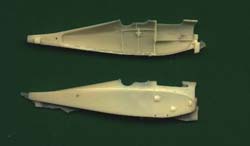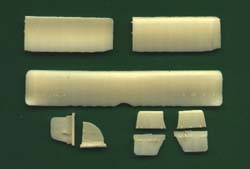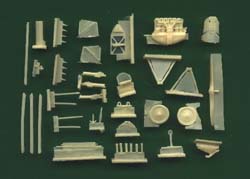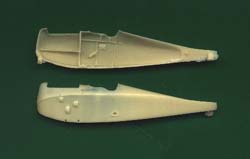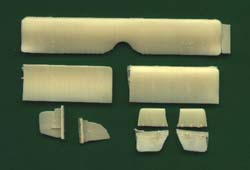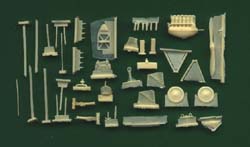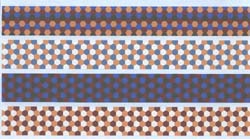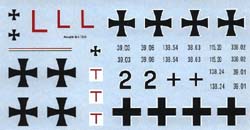Choroszy Modelbud 1/72 resin Aviatik (Berg) D.I series
38. (late) and 338.
|
 |
History
The Aviatik D.I was one of the best known and most important fighters
of the Austro-Hungarian Empire. Designed by Julius von Berg - hence it
was called the "Berg fighter" - was produced by six Austro-Hungarian manufacturers
in many versions, equipped with four different engines and many variations
of the radiators, wings, armament and other equipment. This fact led to
a somewhat complex system of designation for various production series.
Each manufacturer had up to four series ("Bauart" in German) in production,
with each series powered by a different engine. For example Aviatik (Austrian)
factory in Wien produced series designated "38." (Austro-Daimler 185 h.p.
engine) "138." (A.-D. 200 h.p.), "238." (training version with 160 h.p.
engine) and finally "338." version with 225 h.p. engine. Complicated?
Wait for more! Each "Bauart" was constantly modified, and "Bauart 38."
airframes produced in Spring 1917 had the same engines, but different
wings, armament and fuselages than those from the same "Bauart 38." produced
in Summer 1918!
Despite excellent performance, the Berg wasn't fully successful: its
construction was too fragile and a few pilots (including the famous ace
Frank Linke-Crawford) lost their lives due to structural failures during
flight.
The kit
The Review kits represent two different "Bauarts" manufactured by Aviatik,
a very late plane from series 38. and a plane from series 338. Both kits
and airplanes are similar at first glance, but in fact they share very
few main parts, and none of that parts are bigger than tailplanes!
All the parts are flawlessly moulded in ivory-coloured resin with excellent
quality typical for other Choroszy resin kits - all the details are crisp
and there are no air bubbles.
Fuselages (different for each series) are produced in two halves with
thin walls and with detailed interiors. Also each series kit has different
wings: Bauart 338. has doubled number of ribs. Wings are wonderfully thin,
with sharp trailing edges and correct washout of the ailerons. Wing for
"338" is perfectly accurate, "38" version top wing is accurate for the
earlier planes of that series, for airplane with provided fuselage and
armament shape of the wing cut-out should be similar to that of the "338"
- problem very easy to fix.
All the smaller details are the same for both kits, except the radiators:
"38" has car-type front radiator, and "338" has provided two variants:
two side radiators and box radiator placed on the top wing leading edge.
All the small parts are well moulded and detailed - rudder and elevators
have even pushrods and imitation of hinges!
Decals are identical for both kits and include two sheets, one with
national and individual markings (this sheet is common for all Choroszy
Bergs, including D.II) and second, bigger one with "Tarnstoff" - Austro-Hungarian
variant of German "lozenge" camouflage. Decals have very good quality
and are accurate, except the colours of the Tarnstoff - which is probably
the fault of the printer - box-arts show their colours correctly, and
the decals are a bit too bright, too clear, and should be more dull and
greyish. I think that printer forgot about grey component - and fact that
those hexes which should be grey are white on the decal sheet apparently
proves that. But what the printer spoiled, modeller can fix, with gentle
and even overspraying the model with light grey after application of the
Tarnstoff decals, before application of the markings. Believe me, it works!
Conclusion:
These kits are very high quality and accurate (comparing with Windsock
Datafile drawings), so should satisfy every good modeller. As Choroszy
kits are resin ones, I won't recommend them for beginners, but the fit
is very good, so if you have some experience with normal, long-run biplanes,
these kits are some of the easiest resins to build - they even have some
pins and holes helping in assembly.
I'd like to thank Mr. Tomasz Choroszy, owner of the Choroszy
Modelbud for the review kits!
|
|

